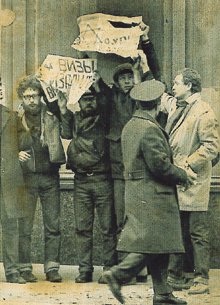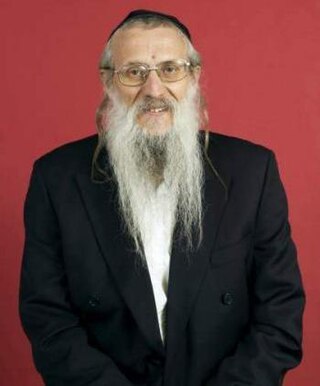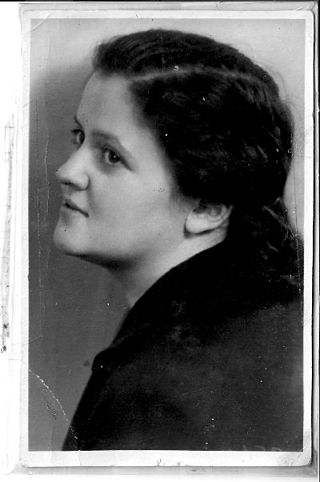Citizens of Israel have refused to serve in the Israel Defense Forces (IDF) or have disobeyed orders on the grounds of pacifism, antimilitarism, religious philosophy, or political disagreement with Israeli policy such as its occupation of the West Bank. Conscientious objectors in Israel are known as sarvanim which is sometimes translated as "refuseniks", or mishtamtim.

Refusenik was an unofficial term for individuals—typically, but not exclusively, Soviet Jews—who were denied permission to emigrate, primarily to Israel, by the authorities of the Soviet Union and other countries of the Soviet Bloc. The term refusenik is derived from the "refusal" handed down to a prospective emigrant from the Soviet authorities.
Natan is a masculine given name, from which Nathan is derived, and a surname. It may refer to:

Natan Sharansky is an Israeli politician, human rights activist, and author. He served as Chairman of the Executive for the Jewish Agency from June 2009 to August 2018, and currently serves as Chairman for the Institute for the Study of Global Antisemitism and Policy (ISGAP), an American non-partisan organization. A former Soviet dissident, he spent nine years imprisoned as a refusenik during the 1970s and 1980s.

Yosef Mendelevitch is a refusenik from the former Soviet Union, also known as a "Prisoner of Zion" and now a politically unaffiliated rabbi living in Jerusalem who gained fame for his adherence to Judaism and public attempts to emigrate to Israel at a time when it was against the law in the USSR.
Sharansky (masculine), Sharanskaya (feminine), or Sharanskoye (neuter) may refer to:

Nativ, or officially Lishkat Hakesher or The Liaison Bureau, is an Israeli governmental liaison organization that maintained contact with Jews living in the Eastern Bloc during the Cold War and encouraged aliyah, immigration to Israel.
The 1970s Soviet Union aliyah was the mass immigration of Soviet Jews to Israel after the Soviet Union lifted its ban on Jewish refusenik emigration in 1971. More than 150,000 Soviet Jews immigrated during this period, motivated variously by religious or ideological aspirations, economic opportunities, and a desire to escape anti-Semitic discrimination.
Laura Bialis is an American-Israeli filmmaker best known for directing and producing the documentary films Rock in the Red Zone (2015) and Refusenik (2008).

Ida Yakovlevna Nudel was a Soviet-born Israeli refusenik and activist. She was known as the "Guardian Angel" for her efforts to help the "Prisoners of Zion" in the Soviet Union.

In Israel, prisoners of Zion were Jews who were imprisoned or deported for Zionist activity in countries where such activity was prohibited. The former Speaker of the Knesset, Yuli Edelstein, and the former chairman of the executive of the Jewish Agency, Nathan Sharansky, were both prisoners of Zion in the Soviet Union. In 1992 an Israeli law made the status of the prisoner of Zion official, however the status was in use long before.

Benjamin Fain was an Israeli physicist, professor-emeritus, and former refusenik.
The Movement for Democracy and Aliyah, commonly known as Da, was a minor Israeli political party founded by immigrants from the former Soviet Union in the early 1990s.
The Soviet Jewry movement was an international human rights campaign that advocated for the right of Jews in the Soviet Union to emigrate. The movement's participants were most active in the United States and in the Soviet Union. Those who were denied permission to emigrate were often referred to by the term Refusenik.

Naum Natanovich Meiman was a Soviet mathematician, and dissident. He is known for his work in complex analysis, partial differential equations, and mathematical physics, as well as for his dissident activity, in particular, for being a member of the Moscow Helsinki Group.

Inna Ilyinichna Meiman-Kitrossky was a refusenik, a member of a group of refuseniks-cancer patients, and an author of textbooks for the English language.
Iosif Ziselovich Begun, sometimes spelled Yosef, whose last name is pronounced "bee-goon" and in Russian literally means "runner," is a former Soviet refusenik, prisoner of conscience, human rights activist, author and translator. Over the course of 17 years, Begun was imprisoned three times and spent over eight years in prisons and labor camps as a political prisoner. He was pardoned and freed in 1987 after political pressure from Jewish political organizations and the U.S. Government.
Freedom Sunday for Soviet Jews was the title of a national march and political rally that was held on December 6, 1987 in Washington, D.C. An estimated 200,000 participants gathered on the National Mall, calling for the General Secretary of the Communist Party of the Soviet Union, Mikhail Gorbachev, to extend his policy of Glasnost to Soviet Jews by putting an end to their forced assimilation and allowing their emigration from the Soviet Union. The rally was organized by a broad-based coalition of Jewish organizations. At the time, it was reported to be the "largest Jewish rally ever held in Washington."
Yesh Gvul is an Israeli movement founded in 1982 at the outbreak of the Lebanon War, by combat veterans who refused to serve in Lebanon. Yesh Gvul's campaign of selective refusal is credited with contributing to the Israeli government's decision to withdraw from south Lebanon.
Vladimir Semyonovich Slepak was a Soviet dissident, refusenik, member of the Moscow Helsinki Group. Along with his wife Mariya Slepak and sons Alexander and Leonid he fought for the right of Jews to emigrate from the Soviet Union.








